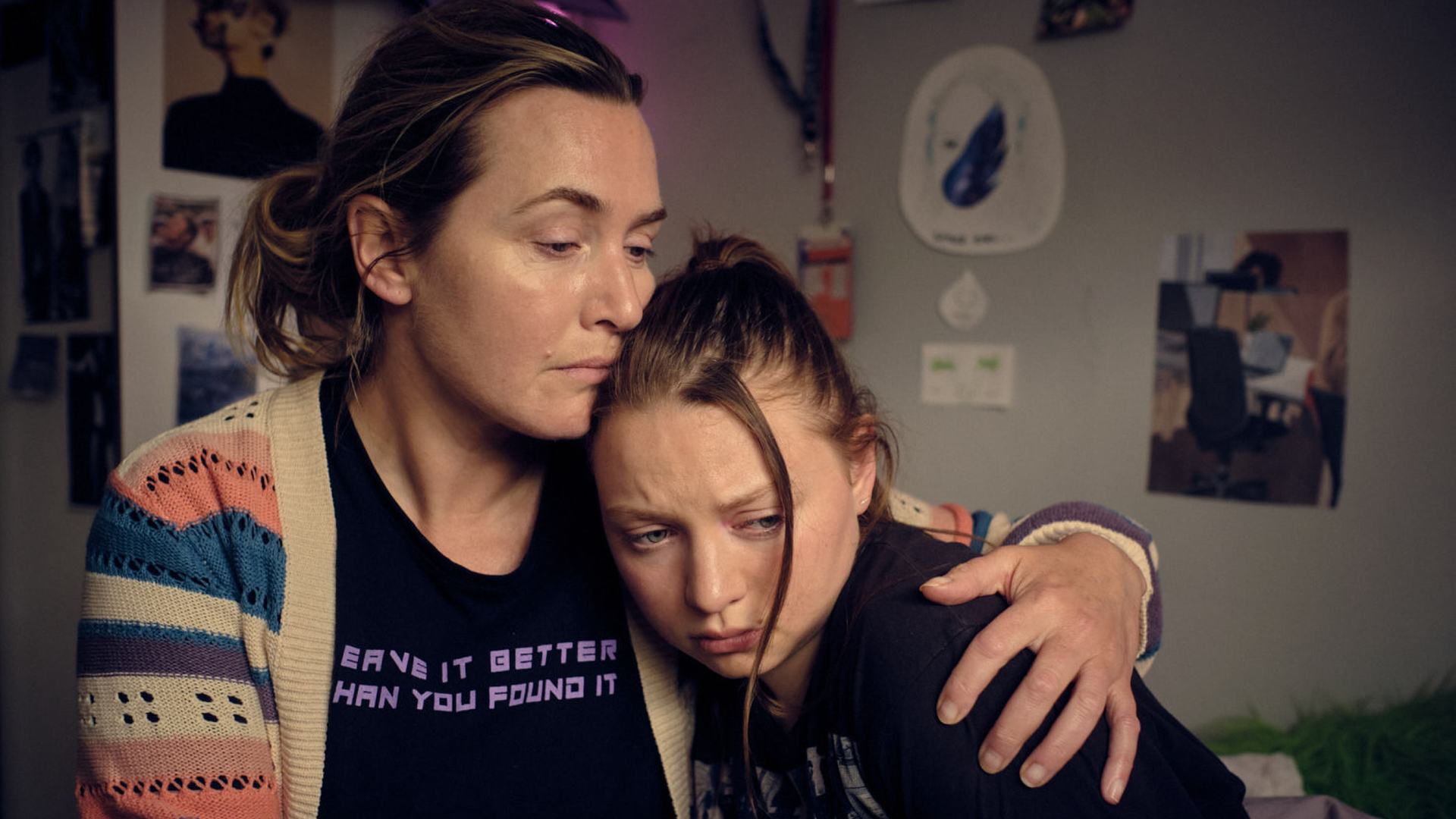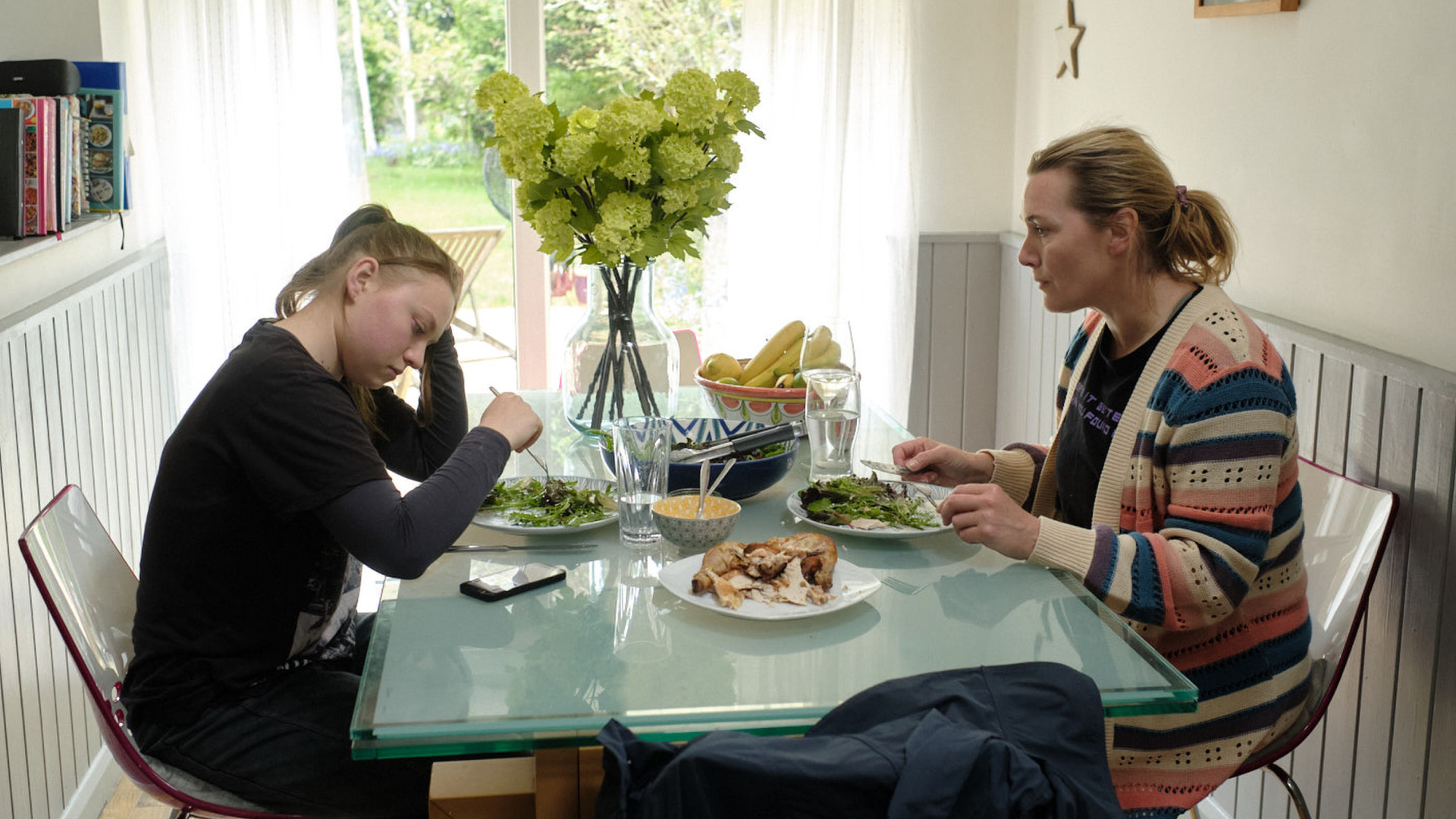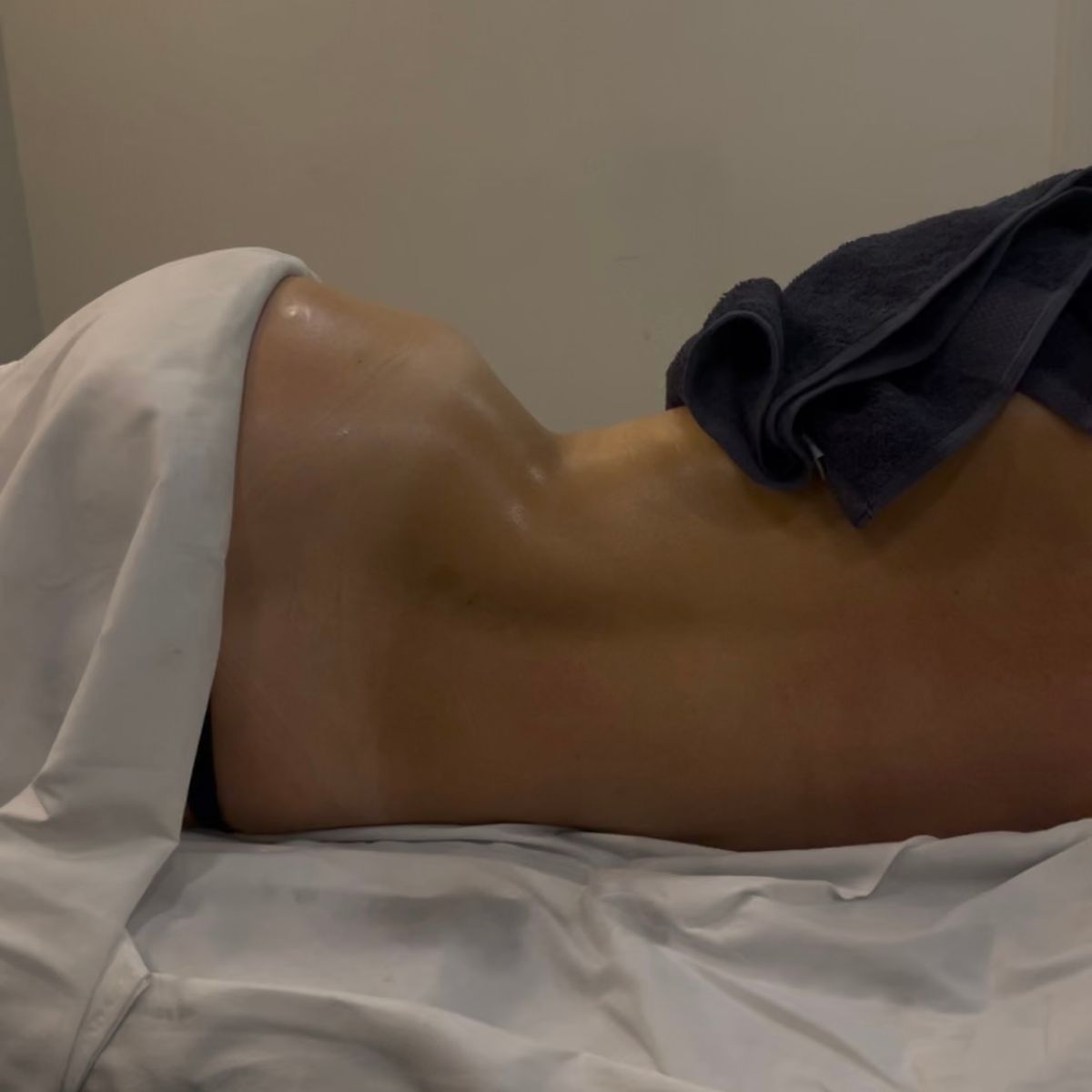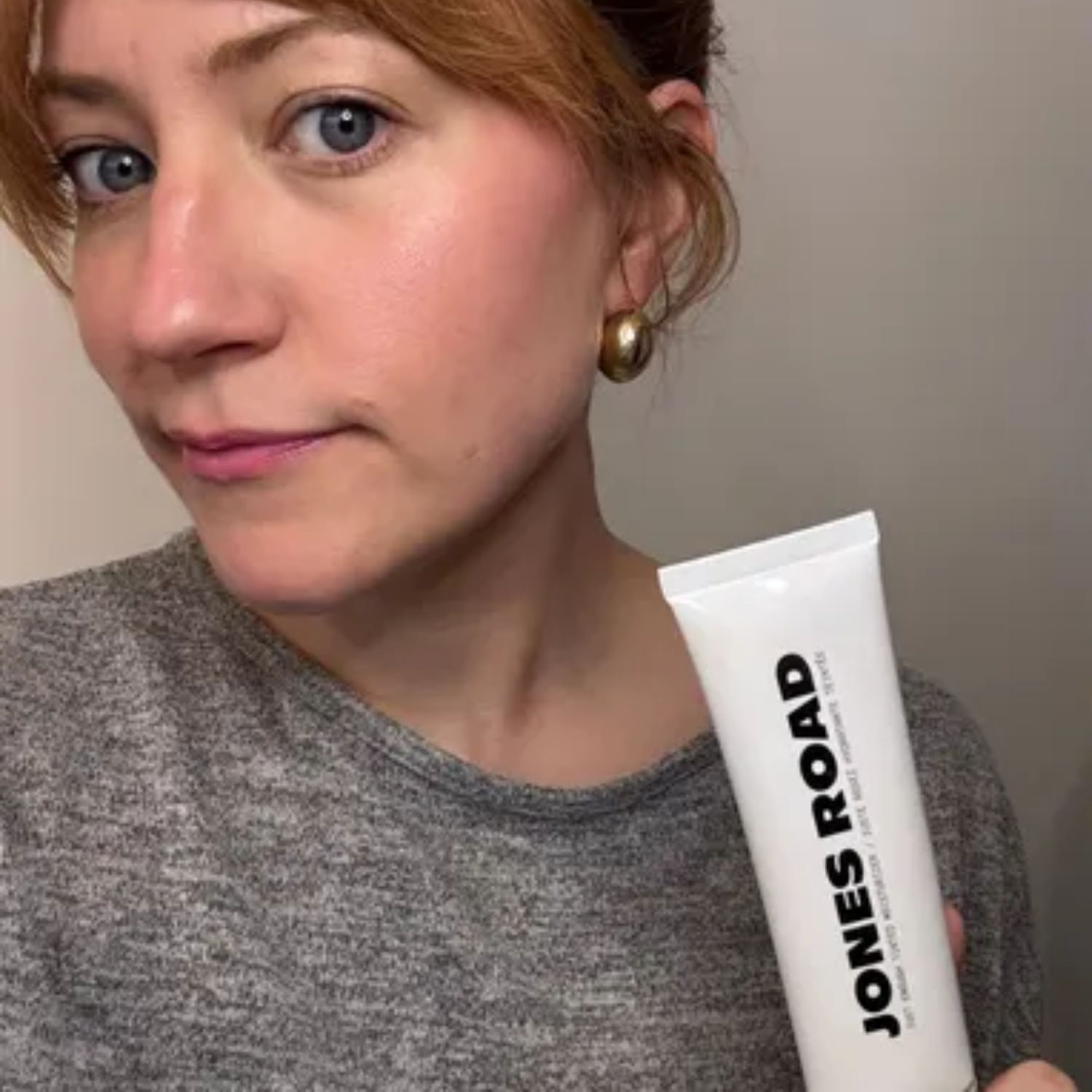5 signs your child is struggling with their mental health
From persistent sadness to withdrawal, how to spot the signs your child is experiencing mental health issues and the actions you can take to help

Identifying that your child is struggling with mental health issues isn’t easy; the signs can be subtle and teenagers in particular can resist letting their parents in on how they’re really feeling. New Channel 4 drama, I Am Ruth, starring Kate Winslet (Ruth) and her daughter Mia Threapleton (Freya), explores the relationship breakdown between mother and daughter, as the former tries to navigate her child’s emerging mental health issues.
Initially, Ruth appears to be in denial about her daughter’s declining mental health. But, as Freya’s symptoms intensify and she becomes more withdrawn, Ruth seeks external help to try and support her daughter. An intense, and at times uncomfortable watch, this insightful drama explores the difficulty parents face when dealing with a child whose mental health is suffering and why it's essential not to ignore the warning signs.
Mental health issues among young people are on the rise. Between 2017 and 2021, the proportion of six to 16-year-olds with a probable mental health condition increased from one in nine (11.6%) to one in six (17.4%), according to an NHS survey. Being able to spot - and act on - the initial signs is crucial for parents so that they can support their children. We spoke to mental health experts about the behaviour changes you shouldn’t overlook when it comes to your child or teenager’s mental health. If any of the symptoms in this guide resonate with you and your child's behaviour, Channel 4's support programme offers advice and support regarding the topics explored in their shows.
Warning signs your child’s mental health may be suffering
1. They’ve become more forgetful than usual

As seen in I Am Ruth, one of the most confusing signs of declining mental health can be forgetfulness and preoccupation. Freya explains to a doctor that over the past month, she’s begun to forget things during her daily life, causing her to feel frightened and confused.
As Dr Fiona Yassin, family psychotherapist and founder and clinical director of The Wave Clinic, explains, this isn’t uncommon. “Becoming forgetful, confused or not being able to concentrate properly are some of the more subtle signs of an underlying mental health issue,” she explains. This can ultimately have a negative impact on schoolwork - another warning sign to look out for. Young Minds, a mental health charity for young people providing free advice online, has a useful section on understanding behaviours and feelings.
2. If a child or teenager becomes argumentative
I Am Ruth sees Ruth’s relationship with her daughter descend into turmoil, with some explosive arguments between mother and daughter. “Extreme oppositional behaviour can often be a sign of a young person needing to assert some control over their life - so it’s worth thinking about if this may be driven by anxiety,” explains Dr Jenna Vyas-Lee, clinical psychologist and co-founder of mental health care clinic Kove. Parents may notice difficulties with classmates, friendships and relationships at home.
We see Ruth internalise her daughter’s behaviour, lashing out at her and how it makes her feel, but experts warn it's important to stay calm and avoid making parallels. “Parents can too quickly minimise the issues or draw parallels to a minor thing that once happened to them in their life,” explains psychotherapist and co-founder of Kove, Jordan Vyas-Lee. “They inadvertently blame or shame the child for their own role in creating or not easily overcoming the difficulties.”
Marie Claire Newsletter
Celebrity news, beauty, fashion advice, and fascinating features, delivered straight to your inbox!
Young Minds also has a feature on how to help a young person manage anger, with expert-approved tips on how to calm a volatile situation.
3. Staying up late and extreme tiredness
In the Channel 4 show, we see Freya staying up late while notifications ping on her phone, much to her mother Ruth’s distress. If your child’s sleeping habits change, that could be a warning sign that their mental health is suffering, or that there is something worrying going on behind the scenes. “Look out for if a child is staying up later than usual - young people who are guarding themselves against online attacks may be super vigilant and stay up much longer than what is usual. This also means they may come home from school much more tired and in a low mood.”
4. Physical symptoms without an explanation
Our physical and mental health are closely interlinked and if a child is suffering recurrent physical symptoms that don’t relate to a previously diagnosed illness or ailment, it could be a clue that they are mentally unwell.
“Symptoms of mental health difficulties in children can show up in several ways physically, as Dr Fiona Yassin explains. “Often, young people present with physical manifestations of mental health difficulties. This could mean headaches, stomach aches, nausea, or tightness in the chest.”
5. Behavioural changes such as hair pulling and skin picking
Anxiety is often the root of mental health issues, so it’s important to recognise anxious behaviours. Some of the most common anxious behaviours include skin picking or hair pulling, as Dr Fiona Yassin explains.
“Behavioural signs include twisting or playing with hair, maybe running their fingers down the shaft of their hair and breaking it,” Dr Yassin told us. “Lots of children who have high anxiety will demonstrate the signs of something called Trichotillomania which is pulling and picking and you might see them start to bite the skin around their fingernails or pick their toenails or scratch the skin on the bottom of their feet. These are all demonstrations of high-anxiety behaviour and should be addressed sensitively and quickly.”
Social media and mental health among teenagers
As we see in I Am Ruth, the rise of social media can have a detrimental effect on children and teenagers - and it’s an area that can be particularly difficult to safeguard. “For teenagers and young adults, the prevalence of social media is ingrained into the fabric of their everyday lives. They may not remember a time without social media and will therefore not be aware of the effect that it could be having on their mental health,” Dr Yassin explains.
“Young people are constantly bombarded with what their friends, peers, and idols are doing, which can make them feel left out. And if their posts aren’t getting enough likes and comments compared to their friends, young people can feel inadequate and anxious and begin to think they are not good enough.
“Social and mass media has the greatest impact on those who are the most vulnerable, particularly those whose self-esteem comes from how others perceive or respond to them, and who want to fit in.”
There’s also a risk, as we see in I Am Ruth, that children can be exposed to damaging content. “Exposure to developmentally inappropriate material, for example, over-sexualised, aggressive or violent content is a huge risk. Excessive exposure to these types of content is known to have a lasting impact on emotional wellbeing and brain development of children.”
What’s a healthy amount of social media for teenagers to consume?
There isn’t a hard and fast rule when it comes to how much social media children and teenagers should consume, but the general consensus from experts is that as little as possible screen time will help safeguard them from the risks.
“The Royal College of Paediatrics recommends parents approach screen time based on the child’s developmental age [meaning that the younger the child is, the less exposure they have],” explains Dr Vyas-Lee. “Families should place value on positive activities such as socialising, exercise and sleep.”
I Am Ruth is available to stream now on All 4
Lauren is the former Deputy Digital Editor at woman&home and became a journalist mainly because she enjoys being nosy. With a background in features journalism, Lauren has bylines in publications such as Marie Claire UK, Red Magazine, House of Coco, women&home, GoodTo, Woman's Own and Woman magazine.
She started writing for national papers and magazines at Medavia news agency, before landing a job in London working as a lifestyle assistant and covers everything from fashion and celebrity style to beauty and careers.
-
 I tried Sofia Grainge’s go-to lymphatic drainage massage - and the results were astonishing
I tried Sofia Grainge’s go-to lymphatic drainage massage - and the results were astonishingThe results go way beyond aesthetics.
By Ashleigh Spiliopoulou
-
 My dry skin loves a tinted moisturiser in the summer months—this one is *outstanding*
My dry skin loves a tinted moisturiser in the summer months—this one is *outstanding*It ticks the boxes for coverage and nourishment
By Matilda Stanley
-
 I was overusing (and wasting) my skincare products until a dermatologist taught me this trick
I was overusing (and wasting) my skincare products until a dermatologist taught me this trickLess slathering, more targeting.
By Darcy Brown
